How Dangerous Are Pesticides to Cannabis Users?
No, really, how toxic are pesticides to cannabis users who don't go organic?
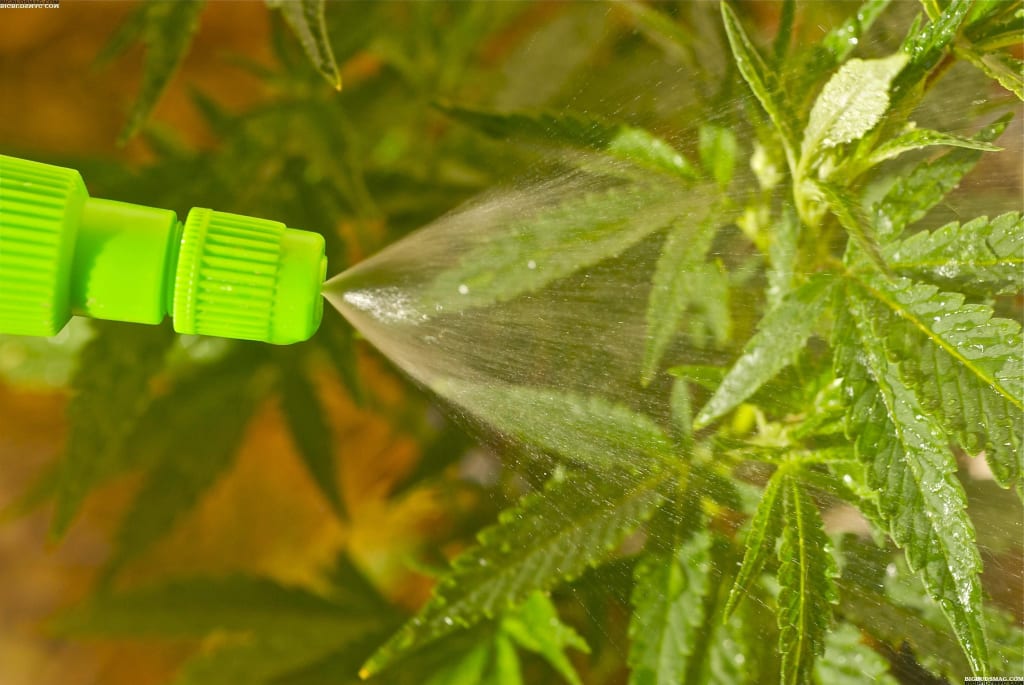
The new wave of states legalizing marijuana use has led to a boom in cultivation—and that's a great thing. However, not all legal marijuana is grown the same way. Some use pesticides to prevent cannabis crops from being eaten by bugs, and others don't.
Part of the reason why the Green Rush is so massive is that cannabis has a lot of health benefits and people are now getting more involved with their personal health. Knowing that, it makes sense that people are beginning to wonder about the dangers of pesticides in their smokeables.
Pesticides are bad for you. This isn't really up for debate. After all, they're bad enough to kill mites and insects, so it's safe to say they can do damage to you too.
For the most part, you never really hear of people getting sick from inhaling pesticide. But, it is a possibility that could happen. How dangerous are pesticides to cannabis users really?
Speaking as a person who has a background in toxicology, I can give you a little insight...
Before we can talk about how toxic the pesticides to cannabis users are, you need to understand toxicology basics.
One of the most common rules uttered by toxicologists is, "The dose makes the toxin." What this means is that the amount of toxin you're exposed to will end up determining how your body reacts to it. It also means that you can have "too much of a good thing" that can also turn toxic to you.
Our bodies have a natural way of eliminating toxic substances from them, but that's only good up to a certain point. That's what our metabolic systems are for.
If we're exposed to low amounts of a toxic substance, it will probably not affect us significantly enough for us to notice. However, if we get exposed to a toxic substance in a really high dose, we get sick.
Take Vitamin E for an example. In small doses, it helps keep skin looking youthful and also helps your vision health. In high doses, it can kill you. The main difference in how our bodies react to Vitamin E is based on dose.
So, when we're talking about how dangerous are pesticides to cannabis users, we have to remember that different crops will have different levels of pesticide sprayed on them. This means that how dangerous the pesticides will be, will be based on how much pesticide the growers sprayed on them.
Not all toxins are equal, either.
Some pesticides are way more toxic than others, and it's important to remember that, too. For example, let's take a look at regular dish soap and dioxin.
Dish soap is a pesticide if you spray it on plants, and it's considered to be one of the safest pesticides for marijuana growing projects. If you smoke chronic with dish soap sprayed on it, you probably will have a harsh toke and may get a little sick if it's thickly sprayed on.
Dioxin, on the other hand, is a pesticide and herbicide known as Agent Orange. Dioxin is 60,000 times more toxic than potassium cyanide. It's one of the most toxic chemicals known to man, and a single, teensy, miniscule drop would be enough to kill two people.
So, when we're talking about how dangerous are pesticides to cannabis users, it's important to realize that not all pesticides are equal.
Lastly, transmission matters.
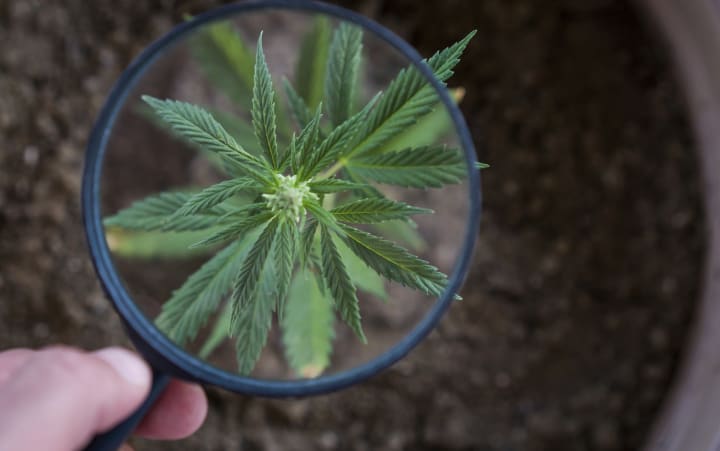
This shouldn't come as a surprise to stoners. We've all noticed how edibles and smoking have different effects. The same can be said with any substance, really. So, in this case, how you're exposed to the pesticide will change how strongly you react to it.
In the case of smoking, it can be pretty hard to nail down how a person's body will react to inhaling pesticides. With a lot of chemicals, the high heat from burning (from smoking) may also cause the chemicals to change. So, that, too, has to be taken into account.
Thankfully, states actually do have guidelines on which pesticides are safe to use.
Surprise! Heavy legislation can actually be helpful once in a while. The FDA and the Department of Agriculture is pretty strict about pesticides, even when Monsanto hates them for it.
Pesticides that are cleared for use can't really be too dangerous, so the good news is that you won't end up smoking dioxin fumes anytime soon. After all, if a pesticide is too toxic, it can turn into a public health issue.
So, if you're worried that you'll die or get cancer from smoking weed grown with pesticides, you can relax. It's extremely unlikely that you would end up with marijuana grown in the US that's been sprayed with FDA-banned substances.
However, there is some bad news.
Though the FDA does give us basic guidelines on which pesticides are safe to use, there are no state or federal regulations on which of those pesticides are cleared for marijuana use.
This is because there aren't really that many studies when it comes to showing how toxic are pesticides to cannabis users. (It doesn't help that there are no federal or state regulations dealing with safe marijuana production at all, but that's for a different article.)
Lawsuits have already started happening due to the pesticide issue.
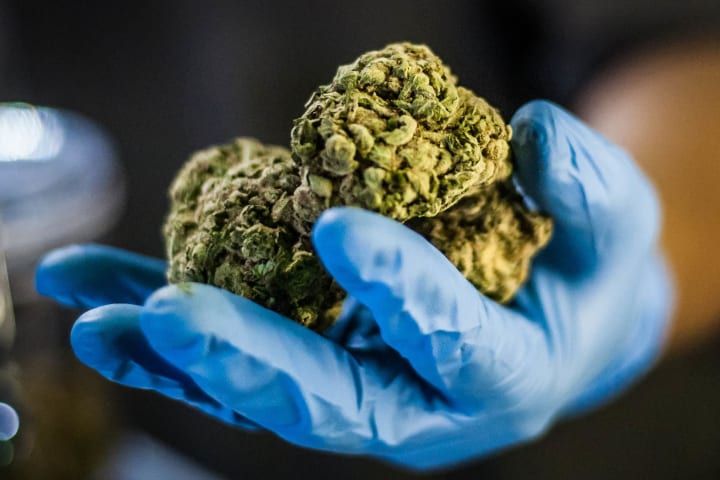
Colorado's biggest pot grower and purveyor of cannabis products, LivWell, was sued for spraying plants with Eagle20—a pesticide containing myclobutanil, a known carcinogen and teratogen. (This means that myclobutanil causes cancer and increased risk of birth defects.)
Though Eagle20 can cause nausea, rashes, and lung irritation, it's still FDA-approved. So, it's not like LivWell did anything wrong in the eyes of the law. It's still a reasonably safe pesticide.
None of the people who smoked the Eagle20-sprayed plants got sick, but they sued regardless. They claimed that they wouldn't have bought the cannabis if they knew about the pesticides used on them, which is a fair complaint.
Right now, there's no requirement for cannabis farmers to disclose if they use pesticides. Clearly, there's going to be a need for cannabis companies to be a bit more open about their farming methods in the future—but for now, it's a leap of faith.
For the most part, the concern over how dangerous pesticides are is not one that you really should lose sleep over.
The vast majority of cannabis users will not find any difference between pesticide-sprayed cannabis and organic cannabis. Sure, pesticides might harsh the toke or alter the taste a little bit, but they usually will not get you sick.
But, there's a caveat to the "don't worry" signal for a select few...

The only people who should be really concerned about how toxic are pesticides to cannabis users are the ones who have immunosuppressed bodies—such as cancer patients who may be using medical marijuana as a painkiller.
Most experts agree that people who are living with immunosuppression should look into just growing their own or finding an organic marijuana grower. (Don't worry, the medical marijuana business has plenty to choose from.)
A lot of people liken it to choosing whether or not to buy organic groceries.
A typical healthy person will never experience sickness from smoking bud that's been sprayed with pesticide—just like most people won't feel sick from eating non-organic food. So, it's really a matter of personal preference similar to the way that eating organic is.
Chances are that organic cannabis grown for sales will be slightly higher in price than pesticide-sprayed cannabis. Whether or not you make the choice to pay that premium (or grow it on your own) is up to you.
Lastly, it's still a good idea to know signs of pesticide-related sickness regardless.
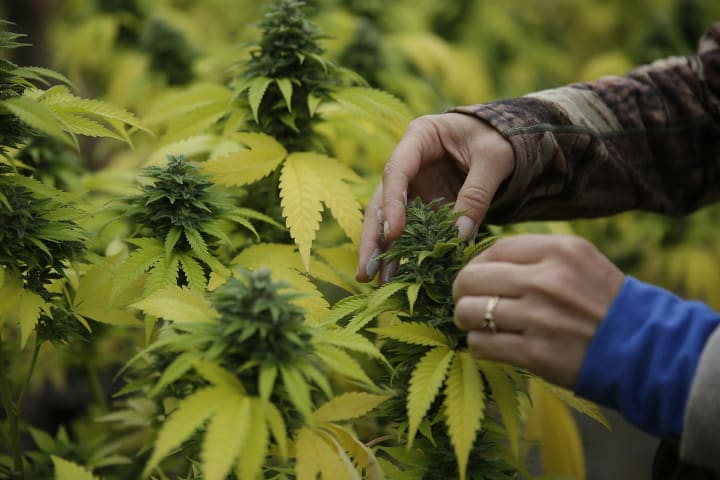
Now that you know how dangerous are pesticides to cannabis users, it's important to actually know when you may have gotten sick from pesticides—or if it's something more severe.
Pesticides typically will cause lung irritation, rashes, eye irritation, and nausea when they do end up making people sick. Lung irritation will happen with cannabis regardless, but the other signs of pesticide toxicity are not going to be present in a typical smoke session.
Unlike what you would experience with a laced joint, you would not get a different kind of "high" from the chronic. So, pesticide-related sickness wouldn't include seeing people who aren't there. If you are hallucinating, you're probably smoking a laced joint and should probably go to the ER.
If you notice that your eyes are stinging way too much, that you're getting queasy, or if you're beginning to break out in rashes, it's safe to say that you are sick from pesticides.
Depending on how bad the reaction is, you may choose to go to a doctor or ride it out. However, it's up to you to gauge what's right to do on that side of things.
About the Creator
Ossiana Tepfenhart
Ossiana Tepfenhart is a writer based out of New Jersey. This is her work account. She loves gifts and tips, so if you like something, tip her!


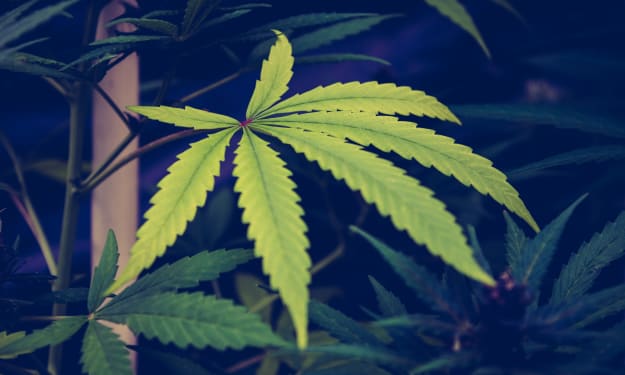



Comments
There are no comments for this story
Be the first to respond and start the conversation.